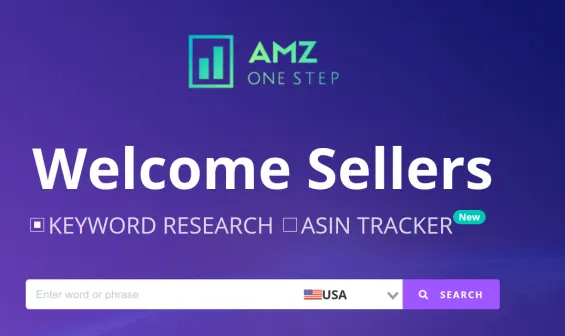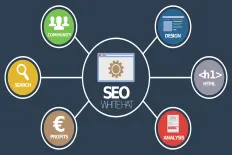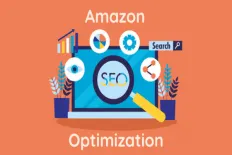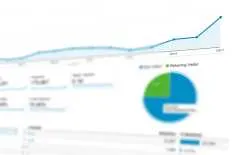This post will focus on the following topics.
- What is a keyword?
- Why are they Important?
- Different Types of keywords
- PROS AND CONS
- Understanding the Buyer’s Intent
- How do you pick the correct keywords?
- KEYWORD RESEARCH TOOLS
- Final Remarks
If you want to learn about keywords and how you can strategically use them to increase your product sales, you’ve come to the right place.
This post will help you with all the basics about keywords, what they are, and how they work. It will also attempt to teach you how to pick the ones that can help increase traffic and, ultimately, better sales.
However, before we get to the good stuff, let’s talk about a few things first.
What is a keyword?

Suppose you look up the definition online. A keyword will typically be defined as ‘any search term entered on a search engine’ (Google, Amazon, etc.). It can be a single word or phrase.
If we were to put it any simpler, you could say, words or phrases used by people on a search engine to search for something are called keywords.
Why are they Important?

They are important because they are fundamental for any sort of optimization, whether it’s for a website, product, or listing. They can be specifically targeted to reach your target audience. They are also a major part of every PPC marketing campaign.
They allow you to reach a wider audience and, in doing so, reach people who might be interested in your product. In this context, the product could be anything from your website to an online store or Amazon Listing.
In other words, your choice of keywords is directly proportional to the overall traffic that you get. Meaning, the more relevant keywords you use, the more chance you have of ranking for those, and the higher you rank, the more people are likely to visit your website or listing.
Different Types of keywords

When it comes to product or listing optimization, you generally work with two types of keywords. Mainly short-tail keywords and long-tail keywords, not to say there aren’t other types. However, these are the ones that are mostly known and used.
Short-tail Keywords: These are search terms that contain three words or fewer. Therefore, they are broader and less specific. For example: “milk” or “water bottle.”
Long-Tail keywords: These, on the other hand, are search terms that are longer than three words and are more specific. For example. The “best type of milk” or “water bottle for travel.”
PROS AND CONS

Both types have their pros and cons, which is why it is recommended that you use both types of keywords.
Short-tail Keywords
Also, refer to as seed words. They have a higher search volume and cover a broad range compared to long-tail keywords, which translates to their low conversion rate. They are useful when you want to drive a lot of traffic to your website or listing. Since they do have such a high volume, the competition and cost for them are also high.
Long-Tail keywords
Long-tail keywords, on the other hand, typically have a low volume with a high conversion rate. They are more focused or targeted. The lower search volume also means that the competition and cost for these keywords are lower in comparison.
Understanding the Buyer’s Intent

Before we can move on further, there is one more thing that you need to know about, and that is intent. Intent can be a great identifier for differentiating between a great keyword from a not so good one.
Look at it this way. People look up hundreds of different things online each day. Not everything they search is about buying or related to a product.
Types of Intent
- Navigational intent: this is when the person knows exactly what they are looking for and has a specific website in mind.
- Informational intent: as the name suggests, the user’s primary focus is to get information about a product or a topic.
- Transactional intent: most important, specifically when it comes to business. This is when the main intention of the person is to interact. I.e., either buy, sign-up, register, etc.
It goes without saying that a buyer’s intent is important when selecting a keyword. The search engine that they are using can also be a great help when figuring out the intent. For example, someone searching on Amazon will be keener to buy a product rather than say someone else looking it up on Google or YouTube.
How do you pick the correct keywords?

Now that we have covered all the necessary topics. Let’s move on, how to pick the correct keywords. The first thing that you need to know is that as a business owner, you want the keywords you are using to be relevant to your product and to what the people are actually searching for.
Picking the ones that cover both will help you better optimize your product listing or website. However, before you can go ahead and add any keyword to your product listing or product page, you need to figure out a few things first.
Firstly, you will need to identify your target audience. This will include identifying where are they from? For instance, are they from Canada? Mexico? New York? After you have identified the place where the majority of your target audience lives.
You will move on and determine the age demographic your product is targeted towards as well as their gender (this mostly applies only if your product is gender-specific).
This does seem like too much work and unnecessary. Still, by taking this critical step beforehand, you will be making it easier for yourself when it’s time to choose keywords for your product page or listing.
Not to mention by specifying your target audience, you will be able to get keywords relevant to those people and make it easier for yourself to filter out the irrelevant ones.
If you are still skeptical, try to see it this way, people from different places tend to use words differently. Sometimes, they even have other names for the same things. Take the example of the words ‘chips’ and ‘fries’.
They both mean the same thing but the use depends on where in the world you are. Similarly, the type of language used changes from one generation to another. In some instances, the same goes for gender as well.
KEYWORD RESEARCH TOOLS

The next step will be using a keyword tool. It is more of a mandatory requirement than an option. The good news is that there are quite a few free ones that can be used. Still, the ones that typically provide more specific functions (needed for relevant keywords) tend to cost money.
So it’s better to invest in the ones that do cost money. One useful tip is that some do have free-trials that can be utilized before you fully invest your money. Selecting the ones that work for you honestly depends on the outcome you want to achieve and the platform you are using.
You can go the general route or if you plan to sell on a specific site like Amazon. It’s better if you used Amazon-specific keyword tools.
Final Remarks

If you follow the above-mentioned steps correctly, you will be able to compile a list containing both short-tail and long-tail keywords.
The only thing left after that will be to incorporate them in your product page, images, back-end, or listing. After you are done, you should be able to see a significant change in both your page traffic and sales.
Read Next
The following articles are related to how to choose the right keywords to increase sales.
















In digital marketing or SEO, the keyword is a vital aspect. Because if we have not selected the right keyword, then it can backfire. So we have to find the right keyword, and Kamaljit Singh has elaborated everything in this article very well. Thank you, Kamaljit Singh.